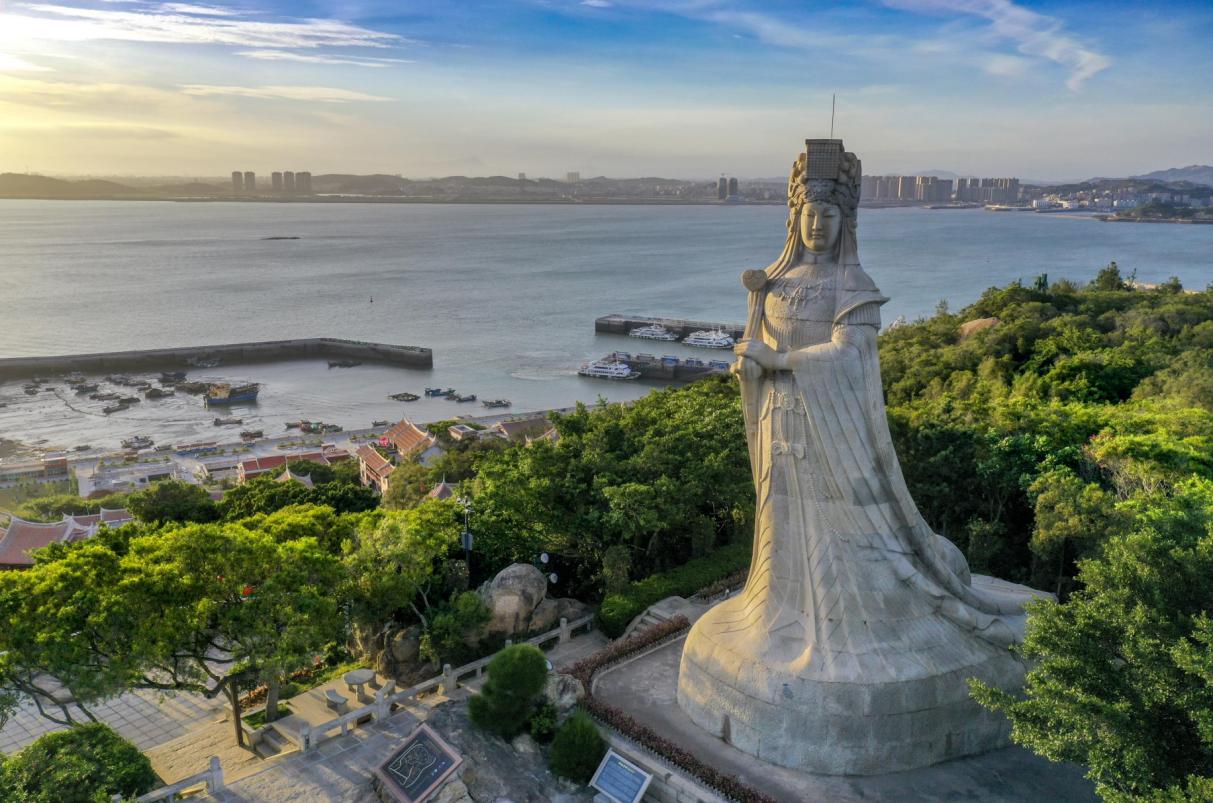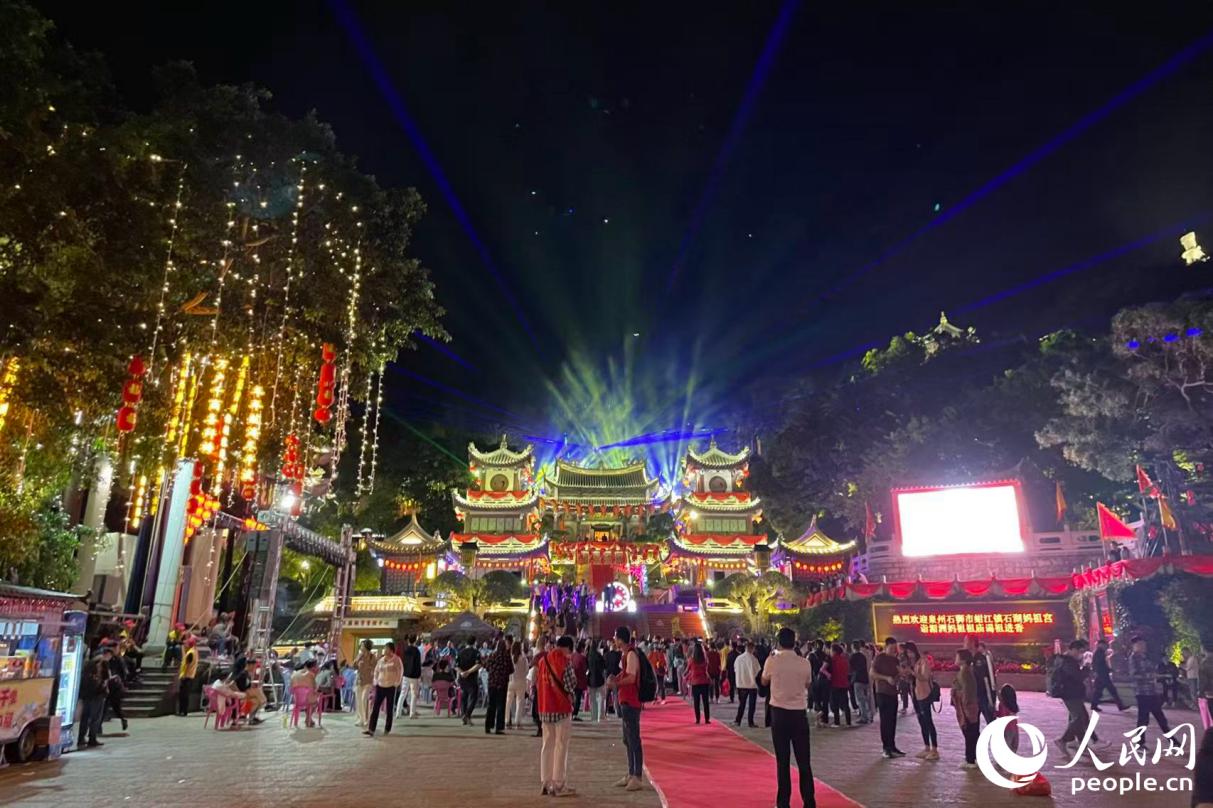




- BRNN
- BRI News
- BRNN News
- Database
Official Documents Polices and Regulations
Inter-government Documents International Cooperation BRI Countries
Business Guide Economic Data BRI Data
Trade
Investment Projects Latest projects
Cases - Content Pool
Surrounded by mountains and the sea, Putian city in southeast China's Fujian Province has carried forward the Mazu spirit of "morality, good deeds, and great love" for over 1,000 years. The 10th Global Mazu Culture Forum will take place in Putian, the city where the event first began.
Mazu is the deified form of a devoted woman named Lin Mo, who was born in Putian in the year 960. She lost her life in 987 while rescuing fishermen caught in a storm. Her courage and compassion inspired generations, earning her the affectionate title "Mazu," the Chinese sea goddess. Originating on Meizhou Island in Putian, Mazu culture is an important part of both China's traditional culture and global maritime civilization.

Photo shows a statue of Mazu on Meizhou Island, Putian city, southeast China's Fujian Province. (Photo courtesy of the Meizhou Island National Tourist Resort)
In ancient times, sailors would pray to Mazu for protection and peace of mind before embarking on their voyages. From its birthplace in Putian, Mazu culture gradually spread with Chinese communities across the seas.
There are now over 11,000 Mazu temples from different dynasties across 50 countries and regions, and more than 300 million devotees around the globe. In 2009, the item "Mazu belief and customs" was inscribed on UNESCO’s Representative List of the Intangible Cultural Heritage of Humanity, solidifying Mazu as a shared cultural symbol among Chinese communities worldwide.

Every year, a large number of devotees come to worship Mazu on Meizhou Island in Putian, southeast China's Fujian Province. (People's Daily Online/Lin Ying)
In 2016, the Global Mazu Culture Forum was approved by the central government and jointly organized by the Ministry of Culture and Tourism, the Ministry of Natural Resources, the Chinese Academy of Social Sciences, the Macao Special Administrative Region government, and the Fujian Provincial People's Government. It became a key international platform for promoting Mazu culture and fostering mutual learning among civilizations. It is now Putian's largest and most influential cultural event.
Today, participation has grown from just over 300 people at the first forum to more than 1,500 in the most recent two sessions, representing 41 countries and regions. The forum has effectively advanced the creative transformation and innovative development of Mazu culture, promoting people-to-people exchanges and win-win cooperation among Belt and Road countries.

Photo shows the ninth Global Mazu Culture Forum in Putian, southeast China's Fujian Province. (People's Daily Online/Lin Ying)
The 10th Global Mazu Culture Forum is scheduled to take place in Putian from Oct. 31 to Nov. 2, with its main venue on Meizhou Island and sub-forums held at various locations both across China and overseas. Alongside the forum, the 27th Meizhou Mazu Culture and Tourism Festival will also be held.

Mazu devotees from the Chinese mainland and Taiwan region worship Mazu. (Photo courtesy of the Publicity Department of the Communist Party of China Putian Municipal Committee)
Mazu culture serves as an important spiritual link between people on both sides of the Taiwan Strait, playing an active role in fostering deeper cross-Strait relations. In Taiwan, there are more than 3,000 Mazu temples and organizations, and nearly two-thirds of the population are Mazu devotees.
At the 2025 World AI Conference in July, the China Meteorological Administration officially launched its national early warning solution, "MAZU," a program that drew widespread recognition from the international community. It marks the beginning of a new international mission for Mazu to promote disaster prevention amid the challenges of global climate change.

Tel:86-10-65363107, 86-10-65368220, 86-10-65363106